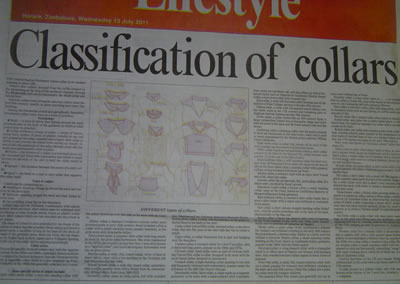Racism in Zanu PF
Posted on July 15th, 2011 by Michael Laban. Filed in Activism, Governance, Reflections, Uncategorized.Comments Off
Last month I went to the MPOI (Mass Public Opinion Institute) panel discussion on security sector reform. Interesting, but some panelists did not speak on the security sector at all. One of the most interesting/disturbing/amusing panelists was Mr. Goodson Nguni, of Zanu PF. Wow, are some of them racists!
All his presentation – supposedly Zanu PF policy on security sector reform – was, “we will not let the whites take over”. I must assume these are all whites in general, as I know of no white involved in security, and there were only two whites in the room, myself and the panelist Mr. Matyszak. The implication, I assume, was that the MDC was a white party. Which was something I did not know. When I was a member, I was of a very small minority.
And secondly, two months ago, while painting MacDonald Park pool, I was asked by the local area (Zanu PF) Chairman if I would consider being the local area Zanu PF Treasurer. So I am left to wonder some more. On the one hand, I am being asked to join them in a senior position (take over their money), on the other hand, their stated aim is not to let the whites (and I am quite sure I am one) take over. So I am forced to consider – amongst all the multiple political parties, and splits, and mergers, etc. are there now two Zanu PFs? The Zanu PF (Rational) Party, and Zanu PF (I am completely out of my tiny little mind) Party? Not that I joined either.
The audience also found some humour in his presentation. There was a lot of sniggering going on. A couple of people stood up and walked out, and from their asides as they were leaving, and the sniggers in response, they found something amusing!
A woman a couple of seats down asked me why I did not respond. I just shrugged. First, it did not need any response. Second, while I may be a racist, I do my best to avoid racial discrimination. And I was there to hear about security sector reform, not engage in a racist debate with a rabid racist. I thought the RF was gone? As a racist (which I think we all are), I notice what colour skin you have. Just as, as a sexist, I notice if you are male of female (I love females!) and as an ageist, I notice how old you are. Discrimination involves taking some action for or against someone depending on their predisposition (skin colour, sex, age). So the Zanu PF policy, as pronounced by Mr. Nguni, is racial discrimination. It involves taking action (keeping them out) based on a skin colour (white). This is a bit disturbing. As a Zimbabwean, I am to be kept out of my national security! However, I console myself by believing that he is only one of the Zanu PFs out there. And the Zanu PF in my area, judging by my area chairman, considers me a Zimbabwean.










